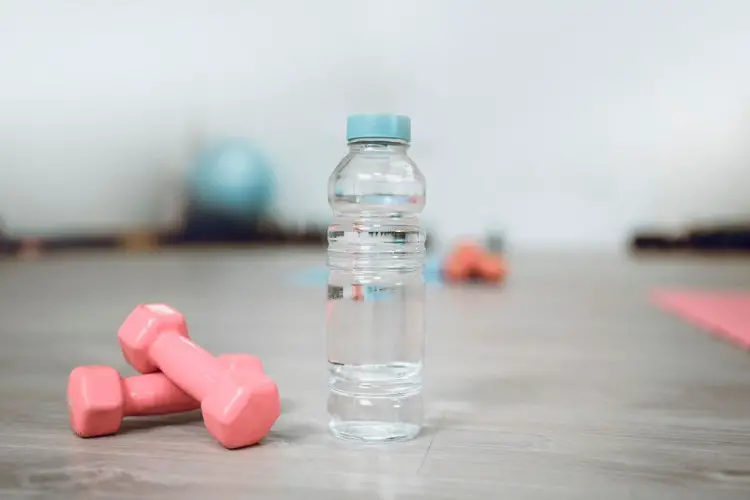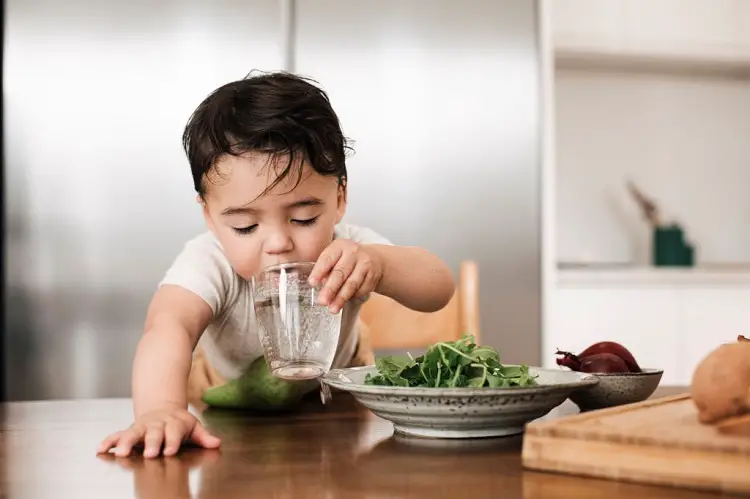The type of water a baby consumes plays a major role in its diet and meeting core nutritional needs. This is why you have to be very meticulous with the type of water you give to your baby.
Before you decide to settle on any particular type of water for your baby, take your time and think it through.
Do the necessary research as well. You’ll be happy you did. Ask yourself questions. ’Is distilled water safe for my baby?’ When can babies drink distilled water? Will my baby’s nutritional needs be met with distilled water?’
Distilled water is one of the most popular types of water amongst new mothers. The reason for its popularity among them isn’t far-fetched. Distilled water is very clean and sparkly.
Despite its admirable purity, it’s not ideal for babies of all ages due to some reasons we would discuss later. How can one know when it’s appropriate or not? Don’t worry, we got you!
We’ll dedicate this article to discussing the question; when can babies drink distilled water? Read on and find out the reason.
What is Distilled Water?
Before we go on to talk about when a baby can drink distilled water, we must know what distilled water is all about.
In simple words, distilled water is water that was boiled into steam and condensed into liquid again. The essence of this process is to ensure purity.
That’s why distilled water is usually very clean. But it contains no minerals at all. You know, other forms of water contain minerals like calcium, fluorine, and others.
When Can Babies Drink Distilled Water?
According to pediatricians, babies can drink distilled water from the age of six months. At this age, babies are fit to drink other forms of water provided they are safe and healthy.
This is because by the time babies are six months old their bodies develop enough to accommodate other forms of water.
But, you still have to be very careful about any water you give to your baby. Babies react to almost anything, water is not left out.
Before you include any type of water into your baby’s diet, be it in formula or anything, do yourself and your baby good by checking properly. Water-induced reactions are quite severe sometimes.
The AAP suggests boiling water first giving it to your baby, whether for drinking or mixing with formula. Boiling the water helps kill germs and remove impurities present in municipal water.
Pediatricians suggest boiling water during the first three or four months before mixing it with formula.
Also, you could give the water to your baby in small amounts first to check the reaction. If there’s no reaction or allergy, you could go on with it.
Read Also: How Long Does Distilled Water Last? Find Out
Drinking Distilled Water: Advantages and Disadvantages

A lot of parents wonder if any advantages come with letting their babies use distilled water. Of course, distilled water comes with some advantages. Find them below.
Advantages of Drinking Distilled Water
1. The Risk of Diseases Are Greatly Reduced
A lot of diseases causing pathogens that can be found in water do not survive the whole distillation process. That is, they are eliminated in the course of water distillation.
This reduces the risk of contracting water-borne diseases. I’m sure you wouldn’t want this for your baby.
2. Distilled Water Cleanses the Body
This is yet another reason why you should let your baby consume distilled water. Distilled water is said to cleanse the body and strip it of harmful substances that could make you ill.
If your baby is sickly, you can trust distilled water to help in flushing out toxins. This doesn’t in any way imply that distilled water will make your baby healthy all of a sudden.
Do not hesitate to go to the hospital when you notice you’re baby is ill. Distilled water doesn’t do magic.
3. Contain Fewer Chemicals
There are some chemicals present in various forms of water. These chemicals could be helpful or disastrous. It depends largely on their quantity in the water.
With distillation, these chemicals cease to exist. Distilled water makes it very easy for one not to ingest harmful chemicals through the water.
Disadvantages of Drinking Distilled Water
Just as there are advantages, distilled water also comes with disadvantages too.
We will also present you with the disadvantages of distilled water and let you decide on what’s best for you and your baby after you’ve weighed both. Find the advantages and disadvantages below!
1. Bad Taste
It would interest you to know that distilled water has a taste quite different from the normal taste of water.
A lot of people have attested to this. Some people describe it as a flat taste. This difference in taste occurs because the distillation process ends up stripping the water of all its minerals.
If you’re very particular about the natural taste of water, you may not like distilled water very much. Your baby may not too.
2. Nutrient Deficiency
It is no news that natural water contains elements like calcium and fluorine which are very essential in the proper development of a child.
Distilled water doesn’t contain any of these elements because the distillation process takes it all away.
This could be quite detrimental to your baby because your baby needs these nutrients to grow well. Continuous use of distilled water might eventually result in nutrient deficiency.
But if you are keen on making your baby drink distilled water, there’s a way to go about it. You can make up for the elements absent by replacing them with supplements.
There are lots of supplements made specifically for this purpose. Make sure to consult with a pediatrician before you place your child on any supplement dosage to avoid mistakes.
3. Electrolyte Imbalance
Distilled water can also cause an imbalance between the electrolytes in your baby’s body because it tampers with your baby’s urinary tract and other important body parts. Distilled water is also said to cause less frequent passing of urine.
Related Posts:
Conclusion
We believe this article has helped to answer your question on when can babies drink distilled water.
Also, we chose to explore the pros and cons of distilled water in a bid to make it easier for you to decide what is best for your baby. Now that you know them, we hope you make the best decisions from now onward.
